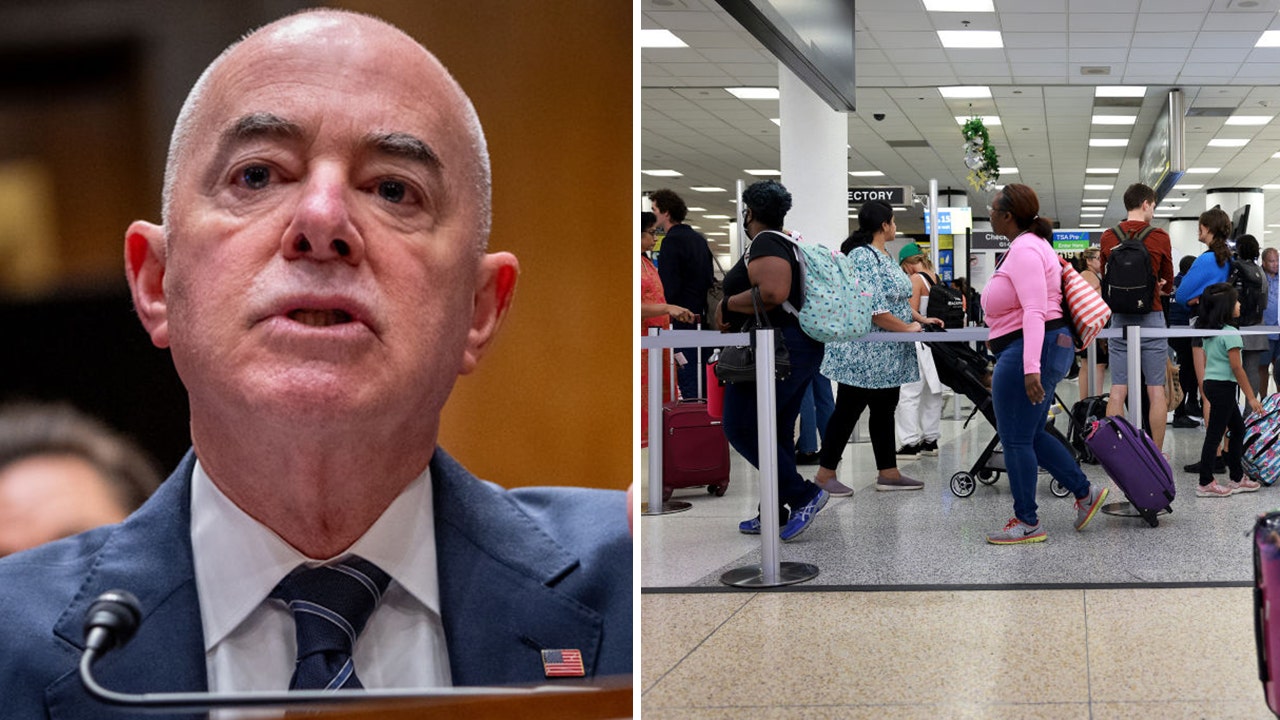Crypto
CoinChapter.com Launches Cryptocurrency Analysis in Hindi, Beginning With XRP

CoinChapter.com, a leading digital asset market analysis platform, has announced the expansion of its cryptocurrency analysis services in Hindi, beginning with XRP.
—
“The XRP price analysis video dives into its fundamentals, the impact of Ripple’s ongoing legal battle with the U.S. Securities and Exchange Commission (SEC), and the potential for XRP to rebound and achieve new milestones,” said Neal Wright, the managing director at CoinChapter.com, adding:
“CoinChapter aims to conduct a similar comprehensive analysis of other top cryptocurrencies in the future, primarily Bitcoin (BTC) and Ethereum (ETH). In doing so, we’ll focus on three core aspects of each cryptocurrency: on-chain, fundamentals, and technical.”
On-chain analysis will help investors and analysts understand the activity and trends within a cryptocurrency network by analyzing aspects like transaction volumes, active addresses, network fees, and more. Fundamentals will focus on events and their influence on cryptocurrencies, while technicals will study the past price data to predict future price movements.
These analyses will simultaneously be published in English, as well. Watch the XRP price analysis video in Hindi at https://youtu.be/drOxrHEps5w
About CoinChapter.com
CoinChapter.com is at the forefront of digital asset market analysis, offering detailed and timely insights into the cryptocurrency sector established by Hexbite Labs. Inc. With a focus on catering to a global audience, introducing Hindi content marks a significant milestone in our mission to make cryptocurrency analysis accessible to all. Stay tuned for more updates and analyses from CoinChapter.com.
Contact Info:
Name: Neal Wright
Email: Send Email
Organization: Coinchapter.com
Phone: +14034526921
Website: https://coinchapter.com/converter/
Release ID: 89127377
In case of detection of errors, concerns, or irregularities in the content provided in this press release, or if there is a need for a press release takedown, we strongly encourage you to reach out promptly by contacting error@releasecontact.com. Our efficient team will be at your disposal for immediate assistance within 8 hours – resolving identified issues diligently or guiding you through the removal process. We take great pride in delivering reliable and precise information to our valued readers.

Crypto
Former Binance CEO CZ sentenced to four months

Changpeng Zhao, the former chief executive of Binance, was sentenced on Tuesday to four months in prison after pleading guilty to violating US money-laundering laws at the world’s largest cryptocurrency exchange.
The sentence was imposed by United States District Judge Richard Jones in Seattle, who rejected prosecutors’ request that the 47-year-old Zhao serve a three-year term.
Once considered the most powerful person in the cryptocurrency industry, Zhao, known as “CZ,” is the second major crypto boss to be sentenced to prison after Sam Bankman-Fried. In March, Bankman-Fried received 25 years behind bars for stealing eight billion dollars from customers of his now-bankrupt FTX exchange.
Zhao pleaded guilty in November to one count of failing to take required anti-money-laundering measures and stepped down as Binance agreed to pay $4.3bn to settle related allegations.
US officials said Zhao deliberately looked the other way as people conducted transactions that supported child sex abuse, the illegal drug trade and “terrorism”.
“I failed here,” Zhao said before US District Judge Richard A Jones issued the sentence. “I deeply regret my failure, and I am sorry.”
“I believe the first step of taking responsibility is to fully recognise the mistakes. Here I failed to implement an adequate anti-money-laundering program … I realise now the seriousness of that mistake”, he said.
Prosecutors had told the judge a tough sentence would send a clear signal to other would-be criminals.
“We are not suggesting that Mr. Zhao is Sam Bankman-Fried or that he is a monster,” prosecutor Kevin Mosley said. But Zhao’s conduct, he said, “wasn’t a mistake. This wasn’t a regulatory ‘oops.’”
The three-year prison term prosecutors sought was more than twice the guideline range for the crime. If he did not receive time in custody for the offence, no one would, rendering the law toothless, they argued.
Zhao had been free on a $175m bond, and agreed not to appeal any sentence within federal guidelines. Zhao also paid $50m to the Commodity Futures Trading Commission.
Trades in violation of US sanctions
Binance allowed more than 1.5 million virtual currency trades, totalling nearly $900m, that violated US sanctions, including ones involving Hamas’s Qassam Brigades, al-Qaeda and Iran.
“He made a business decision that violating US law was the best way to attract users, build his company, and line his pockets,” the US Department of Justice wrote in a sentencing memorandum filed last week.
Zhao’s lawyers insisted he should receive no prison time at all, citing his willingness to come from the United Arab Emirates, where he and his family live, to the US to plead guilty, despite the UAE’s lack of an extradition treaty with the US.
No one has ever been sentenced to prison time for similar violations of the Bank Secrecy Act, defence lawyers Mark Bartlett and William Burck told the judge Tuesday, and Zhao began making changes to make Binance a model of compliance with banking transparency regulations before stepping down.
“There is no excuse for my failure to establish the necessary compliance controls at Binance,” Zhao wrote in a letter to the court. “I wish I could change that part of Binance’s story. But under my direction, Binance has now implemented the most stringent anti-money laundering controls of any non-US exchange, and those controls have been in place since 2022.”
Prosecutors said no one had ever violated the Bank Secrecy Act to the extent Zhao did.
“He says in hindsight he should have done a better job,” Justice Department lawyer Kevin Mosley told the court. “This wasn’t a mistake. When Mr Zhao violated the BSA he was well aware of the requirements.”
Zhao knew that Binance was required to institute anti-money-laundering protocols, but instead directed the company to disguise customers’ locations in the US to avoid complying with US law, prosecutors said.
Several other crypto moguls are also in the crosshairs of US authorities after the collapse of cryptocurrency prices in 2022 exposed fraud and misconduct across the industry.
Crypto
ED & FBI Teamed Up for $30 Billion Cryptocurrency Scam

Indian authorities, together with the FBI, have cracked down on a massive Rs 3,000 crore ($30 billion) scam involving digital currencies in Uttarakhand. This teamwork led to the arrest of two suspects accused of running an international drug trafficking ring.
The operation kicked off when the Enforcement Directorate (ED) started looking into the matter in August 2023. With key info from US authorities, they pinpointed two Indian nationals, Parvinder Singh and Banmeet Singh, as key players in the drug network. The duo was nabbed from Haldwani, Uttarakhand, on April 27, after detailed raids.
The FBI, working in tandem, seized digital currency assets worth around Rs 1,500 crore, directly linked to this criminal network. Meanwhile, the ED also recovered important documents that are crucial for the case. These documents were shared with the FBI for further analysis and evidence collection.
In a related search, law enforcement raided Parvinder Singh’s place in Haldwani to seize electronic devices like computers and smartphones, believed to have been used in the crimes.
This joint effort by Indian and US authorities marks a significant victory in fighting cybercrime and drug trafficking. It’s a testament to international cooperation in combating such illegal activities.
Also Read: CIFDAQ Brings Cutting-Edge Blockchain Solutions to India
Crypto
Safest Ways To Store Your Cryptocurrency In 2024

Table of Contents
Show more
Show less
Cryptocurrency investment is high-risk and complex. The market is volatile, regulators are still rallying to form a policy framework, and numerous scams and fraudulent activities have emerged in recent years. A Web3 security firm, DeFi, found that hackers stole around $2 billion in cryptocurrencies in 2023 and around $3.8 billion in 2022.
It’s no surprise that India, too, has witnessed numerous crypto scams, given that the market is forecasted to reach $343.5 million in 2024, with a user penetration rate of 18.78%. Remember that investing in cryptocurrency requires obtaining appropriate financial advice and investing in only what you can afford to lose.
Related: Why Is the Crypto Market Rising Today?
Why is it Essential to Store Your Cryptocurrency?
A cryptocurrency is a digital asset that exists on a network of computers running in a ledger of transactions built on blockchain technology. These digital tokens, like Bitcoin and Litecoin, do not exist in a physical form. Crypto wallets store cryptocurrencies, which is fundamental to safeguarding the ownership of digital assets.
A crypto wallet is software that creates and stores public and private keys, allowing users to send, receive, store, and monitor crypto assets. A public key contains a long string of alphanumeric characters shortened to make up a wallet address used to receive cryptocurrencies. A private key is required to process the transaction.
Both public and private keys are used to perform successful cryptocurrency transactions. As the name suggests, a public key (like a QR code) is visible to the public and is used to receive cryptocurrencies. The sender, on the other hand, needs a private key to process the transaction. A private key is private to users and protects their digital assets from unauthorized access.
Malicious actors may try every method to access the private key and steal cryptos stored in the wallet. Remember, if you accidentally lose or destroy the private key and seed phrases, your cryptos will be lost forever.
Types of Crypto Storage
Crypto Exchanges
Crypto exchanges are online platforms that help traders buy and sell digital currencies in exchange for cash, fiat currencies, or crypto tokens. They allow users to create an account, add funds to trade their investment in INR to buy cryptocurrencies like Bitcoin or Litecoin, trade crypto tokens for another, or receive the value of their return in cash to their bank account.
There are two types of crypto exchanges. A centralized crypto exchange (CEX) functions like a bank setup that traders trust to conduct transactions or store their digital assets. This means giving complete control to the centralized crypto exchange, including access to the private key. For this reason, CEX is called a custodial wallet, as users don’t have access to private keys.
On the other hand, a decentralized crypto exchange (DEX) leverages blockchain technology to add security to your trading. Such crypto exchanges eliminate third parties—and instead, buyers and sellers directly trade crypto tokens for one another without using cash or fiat currencies. DEXs are known for providing non-custodial wallets, also known as self-custodial, as they provide users complete control of their private keys.
Featured Partners
Legacy
Over 1 Million Investors Trust Mudrex for Their Crypto Investments
Security
Mudrex is Indian Govt. recognized platform with 100% insured deposits stored in encrypted wallets
Fees
Enjoy zero crypto deposit fees and industry’s best fee rates.
Multiple Award-Winning Broker
Listed On Deloitte Fast 50 index, 2022 Best Global FX Broker – ForexExpo Dubai October 2022 & more
Best-In-Class for Offering of Investments
Trade 26,000+ assets with no minimum deposit
Customer Support
24/7 dedicated support & easy to sign up
Welcome Bonus On First Deposit:
Get $30 in your verified trading account on your first deposit.
Variety:
Trade CFDs in crypto, forex, stocks, metals, commodities & more!
Intuitive & Cheap:
Designed for traders of all levels, from beginners to professionals.
Please invest carefully, your capital is at risk
Hot Wallet Storage
Hot wallets are online software for sending, receiving, storing, and monitoring crypto assets. They function like online banking, where users can access their crypto wallet and public and private keys via smartphones, desktops, laptops, and tablets connected to the internet. Users need to be connected online to access their crypto wallet.
Cold Wallet Storage
Cold wallets can be classified as offline wallets that use physical or hardware devices, such as a USB drive or smartcards, that store users’ public and private keys. It comes in various physical forms depending on the user’s needs. Some cold wallets also perform all the functions required to complete a transaction from a single online device. Cold wallets can also include paper-based documentation, which functions like physical shares. It can be used to store large amounts of cryptos given the security, however, the drawback is that the funds can be permanently lost if the devices are misplaced, lost, or damaged.
How To Compare the Types of Cryptocurrency Storage
When it comes to storing crypto safely, users can choose hardware wallets or self-custody wallets, however, that might be complicated for some people given their infrastructure, according to Nischal Shetty, an experienced software developer who founded a popular crypto platform in India, WazirX.
Shetty explained that crypto platforms comply with regulators and law enforcement to prevent illicit transactions and ensure multi-level KYC checks, ID verification for onboarding users, and fund withdrawals—overall required to provide a secure operating environment for all users.
Managing crypto assets via wallet has pros and cons, says Sumit Gupta, who co-founded the cryptocurrency trading platform CoinDCX.
Gupta explained that while traditional cold wallets offer robust security, they require careful handling of physical devices. Self-custodial wallets provide greater control but pose the risk of asset loss if seed phrases are forgotten. Centralized exchanges offer convenience but involve trusting a third party with funds.
It is crucial to choose a compliant crypto platform for legal protection and recourse in case of unforeseen events, added Edul Patel, founder of a crypto investment platform, Mudrex.
Patel explained that users need to regularly update security measures, such as two-factor authentication and encryption protocols, across all storage solutions to add protection against evolving threats to a great extent—all of which balances convenience with security, empowering investors to manage their cryptocurrency holdings effectively while minimizing potential vulnerabilities.
Featured Partners
Legacy
Over 1 Million Investors Trust Mudrex for Their Crypto Investments
Security
Mudrex is Indian Govt. recognized platform with 100% insured deposits stored in encrypted wallets
Fees
Enjoy zero crypto deposit fees and industry’s best fee rates.
Multiple Award-Winning Broker
Listed On Deloitte Fast 50 index, 2022 Best Global FX Broker – ForexExpo Dubai October 2022 & more
Best-In-Class for Offering of Investments
Trade 26,000+ assets with no minimum deposit
Customer Support
24/7 dedicated support & easy to sign up
Welcome Bonus On First Deposit:
Get $30 in your verified trading account on your first deposit.
Variety:
Trade CFDs in crypto, forex, stocks, metals, commodities & more!
Intuitive & Cheap:
Designed for traders of all levels, from beginners to professionals.
Please invest carefully, your capital is at risk
Frequently Asked Questions (FAQs)
What are the different types of crypto storage?
Cryptocurrencies can be stored in three different ways, as follows:
- Crypto exchange: Online marketplace where traders buy and sell cryptocurrencies in exchange for cash, fiat currencies, or crypto tokens.
- Hot wallet: Online software used to send, receive, store, and monitor crypto assets using desktops, laptops, and tablets connected to the internet.
- Cold wallet: These are physical or hardware devices that store users’ public and private keys, like USB or smart cards. The drawback of a cold wallet is that funds can be permanently lost if the devices are misplaced, lost, or damaged.
Can I store cryptos in a USB?
Yes—Cold wallets use physical devices, like USB or smart cards, to store large amounts of cryptocurrencies, and come with a set of security features to access the device. However, you can lose crypto assets permanently if the devices are misplaced, lost, or damaged.
What is a crypto wallet?
A crypto wallet is software that creates and stores public and private keys, allowing users to send, receive, store, and monitor crypto assets.
-

 Education1 week ago
Education1 week agoVideo: Dozens of Yale Students Arrested as Campus Protests Spread
-

 World1 week ago
World1 week agoEU sanctions extremist Israeli settlers over violence in the West Bank
-

 World1 week ago
World1 week agoShipping firms plead for UN help amid escalating Middle East conflict
-

 Politics1 week ago
Politics1 week ago'Nothing more backwards' than US funding Ukraine border security but not our own, conservatives say
-

 Politics1 week ago
Politics1 week agoDemocrats hold major 2024 advantage as House Republicans face further chaos, division
-

 Politics1 week ago
Politics1 week agoFetterman hammers 'a–hole' anti-Israel protesters, slams own party for response to Iranian attack: 'Crazy'
-

 World1 week ago
World1 week agoPeriod poverty still a problem within the EU despite tax breaks
-

 Politics1 week ago
Politics1 week agoA battle over 100 words: Judge tentatively siding with California AG over students' gender identification













